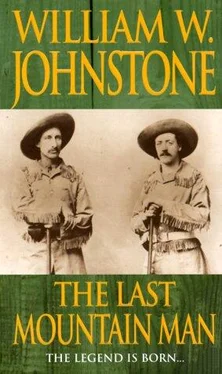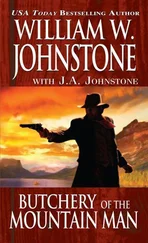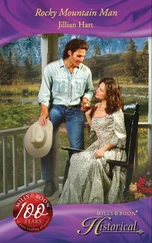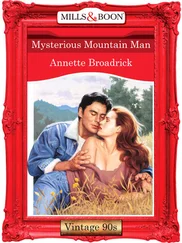Johnstone, W. - Last Mountain Man
Здесь есть возможность читать онлайн «Johnstone, W. - Last Mountain Man» весь текст электронной книги совершенно бесплатно (целиком полную версию без сокращений). В некоторых случаях можно слушать аудио, скачать через торрент в формате fb2 и присутствует краткое содержание. Жанр: Старинная литература, на английском языке. Описание произведения, (предисловие) а так же отзывы посетителей доступны на портале библиотеки ЛибКат.
- Название:Last Mountain Man
- Автор:
- Жанр:
- Год:неизвестен
- ISBN:нет данных
- Рейтинг книги:5 / 5. Голосов: 1
-
Избранное:Добавить в избранное
- Отзывы:
-
Ваша оценка:
- 100
- 1
- 2
- 3
- 4
- 5
Last Mountain Man: краткое содержание, описание и аннотация
Предлагаем к чтению аннотацию, описание, краткое содержание или предисловие (зависит от того, что написал сам автор книги «Last Mountain Man»). Если вы не нашли необходимую информацию о книге — напишите в комментариях, мы постараемся отыскать её.
Last Mountain Man — читать онлайн бесплатно полную книгу (весь текст) целиком
Ниже представлен текст книги, разбитый по страницам. Система сохранения места последней прочитанной страницы, позволяет с удобством читать онлайн бесплатно книгу «Last Mountain Man», без необходимости каждый раз заново искать на чём Вы остановились. Поставьте закладку, и сможете в любой момент перейти на страницу, на которой закончили чтение.
Интервал:
Закладка:
“How come?”
“Boy, you sure ask a lot of questions. Worrisome.”
“Well, how else am I to learn?”
“I can cuss now and then ’cause I’m older than you, that’s why.”
“How long will it be ’fore I can cuss, Pa?”
The father shook his head and hacked his dry cough. “Lord have mercy on a poor veteran and give me strength.” But he was smiling as he said it.
They had left the cool valleys and hills of Missouri, with rushing creeks and shade trees. They rode into a hot Kansas summer. Only four years into the Union, much of Kansas was unsettled, with almost the entire western half the territory of the Kiowa and Pawnee; the Kiowa to the south, the Pawnee to the north.
The pair rode slowly, the pack horses trailing from lead ropes. The father and son had no deadline to meet, no place in particular to go … or so the boy thought.
They crossed through Osage country without encountering any hostile Indians. They saw a few — and probably a lot more saw them than they realized — but those the father and son spotted were always at a distance, or were not interested in the pair.
“They may be huntin’,” Emmett said. “I hear tell Indians is notional folks. Hard for a white man to understand their way of life. I’m told the same band that might leave us alone today, might try to kill us tomorrow.”
“Why, Pa?”
“Damned if I know, boy.”
“You cussin’ again.”
“I’m older.”
When they reached the Arkansas River, later on that afternoon, Emmett pulled them up and made camp early.
“We got ample powder and shot and paper cartridges, boy. I figure more’n we’ll need to get through. According to them I talked with, from here on, it gets mean.”
“How’s that. Pa?”
“We’re headin’ west and north as we go. Like this,” he drew a line in the dirt with a stick. “This’ll take us, I hope, right between the Kiowa and the Pawnee. The white man’s been pushin’ the Indian hard the past few years, takin’ land the Indians say belongs to them. The savages is gettin’ right ugly about it, so I’m told.”
“Who does the land belong to, Pa?”
Emmett shook his head. “Don’t rightly know. Looks to me like it don’t really belong to nobody. Way I look at it — and most other white folks — a man’s gotta do something with the land to make it his. The Indians ain’t been doing that. So I’m told. They just roam it, hunt it, fish, and the like.”
“But how long have they been doing that. Pa?”
The man sighed. He looked at his son. “I ’spect forever, boy.”
They rode westward, edging north. Several weeks had passed since they rode from the land of Kirby’s birth, and already that place was fading from his mind. He had never been happy there, so he made no real attempt to halt the fading of the images.
Kirby did not know how much his Pa had gotten for the land and the equipment and the mules, but he knew he had gotten it in gold — and not much gold. His Pa carried the gold in a small leather pouch inside his shirt, secured around his neck with a piece of rawhide.
The elder Kirby was heavily armed: a Sharps .52 caliber rifle in a saddle boot, two Remington army revolvers in holsters around his waist, two more pistols in saddle holsters, left and right of the horn. And he carried a gambler’s gun behind his belt buckle: a .44 caliber, two-shot derringer. His knife was a wicked-looking, razor-sharp Arkansas Toothpick in a leather sheath on his left side.
Kirby never asked why his father was so heavily armed. But he did ask, “How come them holsters around your waist ain’t got no flaps on them, Pa? How come you cut them off that way?”
“So I can get the pistols out faster, son. This leather thong run through the front loops over the hammer to hold the pistol.”
“Is gettin’ a gun out fast important, Pa?” He knew it was from reading dime novels. But he just could not envision his father as a gunfighter.
“Sometimes, boy. But more important is hittin’ what you’re aimin’ at.”
“Think I’ll do mine thataway.”
“Your choice,” the father replied.
Kirby knew, from hearing talk after Appomattox, the Gray was supposed to turn in their weapons. But he had a hunch that his father, hearing of the surrender, had just wheeled around and took the long way back to Missouri, his weapons with him, and the devil with surrender terms.
His dad coughed and asked, “How’d you get that Navy Colt, son?”
“Bunch of Jayhawkers came ridin’ through one night, headin’ back to Kansas like the devil was chasin’ them. Turned out that was just about right. ’bout a half hour later, Bloody Bill Anderson and his boys came ridin’ up. They stopped to rest and water their horses. There was this young feller with them. Couldn’t have been no more than a year or so older than me. He seen me and Ma there alone, and all I had was this old rifle.” He patted the worn stock of an old flint and percussion Plains’ rifle in a saddle boot. “So he give me this Navy gun and an extra cylinder. Seemed like a right nice thing for him to do. He was nice, soft-spoken, too.”
“It was a nice thing to do. You seen him since?”
“No, sir.”
“You thank him proper?”
“Yes, sir. Gave him a bit of food in a sack.”
“Neighborly. He tell you his name?”
“Yes, sir. James. Jesse James. His brother Frank was with the bunch, too. Some older than Jesse.”
“Don’t recall hearin’ that name before.”
“Jesse blinked his eyes a lot.”
“Is that right? Well, you ’member the name, son; might run into him again some day. Good man like that’s hard to find.”
As the days rolled past, the way ever westward, father and son learned more of the wild country into which they rode, ever alert for trouble, and they learned more of each other, becoming reacquainted.
They saw herds of buffalo that held them spellbound, the size and number and royal bearing of the magnificent animals awe-inspiring. Even though the animals themselves were stupid. And many times, as they rode, father and son came upon the bones of what appeared to be thousands of the animals, callously slaughtered for their hide, hump, and tongue, the rest left to rot and stink under the summer sun.
“Them is the Indians’ main food supply,” Emmett told his son. “And another reason why the savages is mad at the whites. I got to side with the savages ’bout this.”
As they skirted the rotten bone yard, coyotes and a few wolves feasted on the tons of meat left behind. Kirby said, “This don’t seem right to me.”
“Ain’t!” Emmett said, his jaw tight with anger. “Man shouldn’t never take no more than he hisself can use. This is just pure ol’ waste. Stupid.”
“And the Indians had nothing to do with this?”
“Hell, no! Look at them shod pony tracks. Indians don’t shoe their ponies and drive wagons that left them tracks over there. The white man did this.”
They passed the slaughter, both silent for a time. Finally the boy said, “Maybe the Indians have a point about the white man comin’ here.”
His father spat a brown stream of tobacco juice from the ever present chew tucked in his cheek. “Reckon they do, boy. Not much is ever just black and white … always a middle ground that needs lookin’ at.”
“Like the War between the States, Pa?”
“Yeah. Right and wrong on both sides there, too.”
“Was you a hero. Pa?”
“We all was. Ever’ man that fought on either side. It was a hell of a war.”
“Was you an officer?”
“Sergeant.”
“Why was everybody a hero, Pa?”
“’cause they’ll never be — I pray God — another war like that one, boy. Don’t know the final count of dead, but it was terrible, I can tell you that.”
Читать дальшеИнтервал:
Закладка:
Похожие книги на «Last Mountain Man»
Представляем Вашему вниманию похожие книги на «Last Mountain Man» списком для выбора. Мы отобрали схожую по названию и смыслу литературу в надежде предоставить читателям больше вариантов отыскать новые, интересные, ещё непрочитанные произведения.
Обсуждение, отзывы о книге «Last Mountain Man» и просто собственные мнения читателей. Оставьте ваши комментарии, напишите, что Вы думаете о произведении, его смысле или главных героях. Укажите что конкретно понравилось, а что нет, и почему Вы так считаете.












